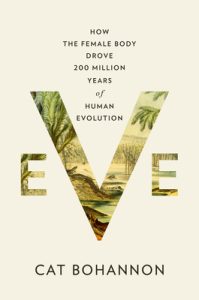
History is rarely kind to women who defy expectations. In Platerówki? God Forbid! Women, War, and the Aftermath, acclaimed journalist and historian Olga Wiechnik resurrects the untold stories of the women who served in the only all-female military unit in Polish history: the Independent Women’s Battalion of Emilia Plater. These were women who carried mortars, commanded men, fought on the front lines, and paid a heavy price for doing so.
Wiechnik’s book begins with a chilling confession from Ada, one of these women soldiers: “I just wanted to come back. Whether by the devil’s help or Stalin’s, it didn’t matter as long as I could come home.” Her words capture both the desperation and resilience of thousands of Polish women deported to Siberia during World War II who later joined General Berling’s army in the Soviet Union. They were promised a path home through military service, yet the road they took led to both liberation and lifelong stigma.
After the war, these women called Platerówki, after the Polish national heroine Emilia Plater returned to a homeland that no longer welcomed them. They were told to “buy themselves an apron” and bear sons for the new socialist state. In communist Poland, their war stories were reshaped into propaganda. In modern times, they have been twisted again to fit political agendas. Wiechnik’s book restores their humanity, showing who they truly were: not symbols, but women of flesh and blood, courage and doubt, love and pain.
Amelia, one of the readers deeply moved by this work, wrote that this book “shows just how much Poland’s education system hates women.” She laments that the contributions of female soldiers are almost entirely erased from school curriculums. Indeed, Platerówki? God Forbid! stands as a powerful corrective to that silence. Even with moments where Wiechnik’s own commentary fades, the book’s strength lies in letting the women speak for themselves. Their stories pulse with life, anger, humor, and a fierce will to survive.
Karol Kollinger calls it a “mega interesting historical reportage” and vividly recounts how these women were exiled to Siberia, joined the army, and then faced suspicion upon their return. Seen as Soviet collaborators rather than war heroes, they were rejected by the same people they had fought to free. The painful irony of their experience is distilled in one soldier’s bitter encounter: “Polish, or just wearing a Polish uniform?”
Anna Gotowska, another admirer of Wiechnik’s work, describes the author’s gift as “breathing life into forgotten heroines without romanticizing them.” Wiechnik balances empathy with rigorous honesty, portraying her subjects as complex individuals rather than victims or saints. Like her previous book Posełki, this is a landmark work of herstory a deliberate act of reclaiming women’s space in a history that has long denied them a voice.
What makes Platerówki? God Forbid! so compelling is its emotional and moral depth. It’s not just a history of war; it’s a story of identity, erasure, and memory. Wiechnik shows how the narrative of national pride has often been written at women’s expense, and she refuses to let that continue. Her writing is compassionate but unsparing, ensuring that the Platerówki are remembered not as footnotes, but as pioneers who “blew apart the system,” as one historian in the book says.
This is a vital and haunting read for anyone interested in women’s history, Eastern European politics, or the ways propaganda reshapes truth. Wiechnik gives voice to those who were told to remain silent, and in doing so, restores an essential chapter of Polish history.
If you are drawn to powerful stories of women who fought both on the battlefield and against historical amnesia, Platerówki? God Forbid! is an unmissable read.
👉 Get your copy here: Buy on Amazon


